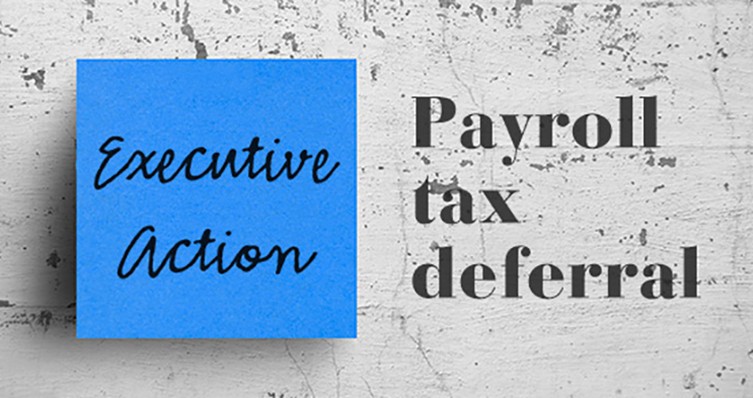
President Donald Trump has signed an executive memorandum that defers an employee’s portion of Social Security and Medicare taxes from Sept. 1 through Dec. 31, 2020. At this point, the taxes are just deferred, which means they’ll still have to be paid at a later date. However, the action directs U.S. Treasury Secretary Steven Mnuchin to “explore avenues, including legislation, to eliminate the obligation to pay the taxes.”
The exact impact on employers and employees isn’t yet known. There are many open questions, including President Trump’s legal ability to implement the deferral. Other questions for employers are how to determine which employees are eligible depending on what compensation is included for this calculation, when the tax will be due, and how to collect the deferred tax from employees who are no longer employed when the tax is due in the future. Some experts believe there may be legal challenges to this executive action.
Deferral details
The payroll tax deferral will be available for “any employee the amount of whose wages or compensation, as applicable, payable during any bi-weekly pay period generally is less than $4,000.”
The deferral will be calculated on a pretax basis or the equivalent amount with respect to other pay periods. Plus, the amounts will be deferred without any penalties, interest, additional amount, or addition to the tax.
Stay tuned for additional guidance
There is still much to flesh out about this payroll tax deferral because of potential Congressional actions or legal actions. Secretary Mnuchin has been instructed to provide additional guidance, and employers can’t act on the deferral until that happens. We’ll monitor developments and their implications for your business.
© 2020
KraftCPAs can help.
Call us at 615-242-7351 or complete the form below to connect with an advisor.